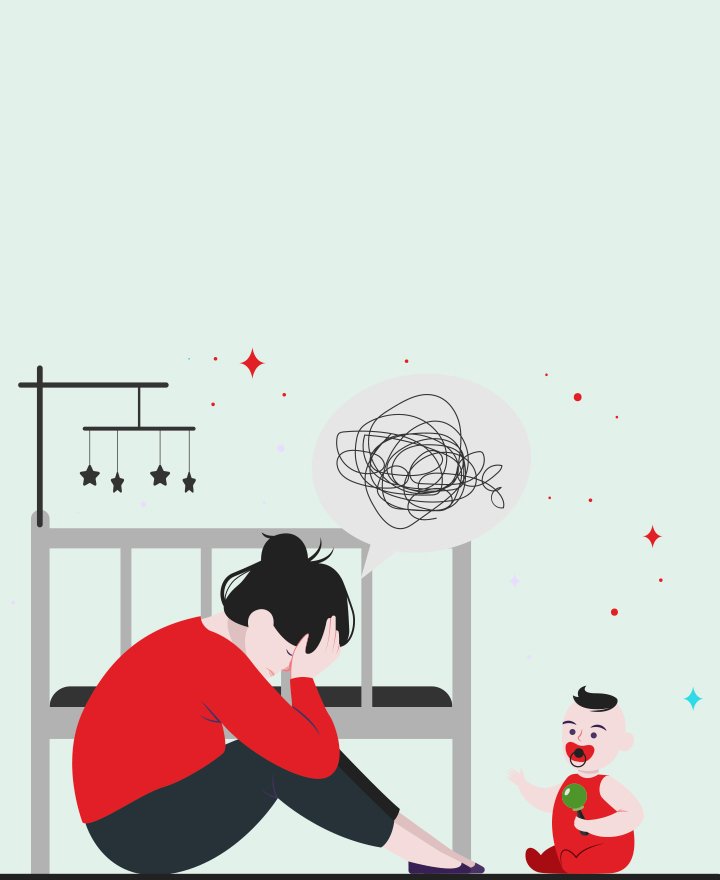
How to Help a Friend with Postpartum Depression
Supporting a friend who is struggling with postpartum depression (PPD) requires sensitivity, understanding, and practical help. Postpartum depression can affect anyone who has recently given birth, regardless of their previous mental health history, and it is essential to offer compassionate and informed support. Here’s a detailed guide on how to help a friend navigate this challenging time.

postpartum depression
Recognize the Signs and Symptoms
Understanding the signs of postpartum depression is crucial for providing the right kind of support. Symptoms may include severe mood swings, persistent sadness, anxiety, fatigue, changes in sleeping and eating patterns, and difficulty bonding with the baby. Educating yourself about these symptoms can help you offer more empathetic support and recognize when your friend might need professional help.
Offer a Non-Judgmental Ear
Sometimes, the most valuable support you can offer is simply being there to listen. Let your friend express their feelings without fear of judgement. Avoid offering unsolicited advice or making them feel as though they should be “better” by now. Validate their emotions and reassure them that it’s okay to feel overwhelmed and that they are not alone.
Encourage Professional Help
Postpartum depression is a serious condition that often requires professional intervention. Encourage your friend to seek help from a healthcare provider, such as a therapist or psychiatrist, who specialises in maternal mental health. Offer to assist in finding a provider or accompany them to appointments if they feel comfortable with that.
Assist with Practical Tasks
New parents often struggle with the demands of caring for a newborn while managing their own mental health. Offer to help with practical tasks such as cooking meals, running errands, or babysitting. Even small acts of assistance can relieve some of the daily pressures and provide your friend with a much-needed break.
Support Self-Care
Encourage your friend to prioritise self-care, even if it feels challenging. This might include taking short breaks, practising relaxation techniques, or engaging in activities they enjoy. Support their efforts by helping them find time for themselves and recognizing the importance of self-care in their recovery.
Be Patient and Understanding
Recovery from postpartum depression can take time, and it’s important to be patient with your friend. Understand that their mood and energy levels may fluctuate, and they might need ongoing support. Offer reassurance and remind them that they are valued and loved, even when they might not feel their best.
Stay Informed and Educated
Continue to educate yourself about postpartum depression to better support your friend. Understanding the condition and its treatment options can make you a more effective and empathetic supporter. Consider reading books, articles, or attending workshops on maternal mental health to deepen your understanding.
Respect Their Space and Boundaries
While it’s important to offer support, it’s equally important to respect your friend’s need for space. They might need time alone or feel overwhelmed by too much social interaction. Respect their boundaries and let them know that you are there for them whenever they are ready.
Encourage a Support Network
Help your friend connect with other resources and support networks, such as postpartum support groups or online communities. Sometimes talking to others who have experienced similar challenges can provide comfort and practical advice.
Celebrate Small Victories
Acknowledge and celebrate the small victories and progress your friend makes. Recovery from postpartum depression can be gradual, and recognizing these milestones can provide encouragement and motivation. Your support in celebrating these achievements can help foster a positive outlook.
What should I do if my friend refuses to seek professional help despite showing clear signs of postpartum depression?
If your friend refuses to seek professional help despite showing clear signs of postpartum depression, it’s important to approach the situation with empathy and patience. Start by having an open, non-judgmental conversation where you express your concern and emphasise that seeking help is a sign of strength, not weakness. Gently suggest the benefits of professional support and offer to help them find a provider or accompany them to appointments if they’re open to it. However, it’s crucial to respect their autonomy and avoid pressuring them. Instead, continue providing emotional support and practical assistance to help alleviate their daily stressors. Sometimes, knowing that someone cares deeply and is willing to support them unconditionally can make a significant difference in their readiness to seek help. Keep the lines of communication open and let them know that your support remains steadfast, no matter their decision regarding professional help.
How can I balance offering support with respecting my friend’s need for privacy and space?
Balancing support with respect for your friend’s need for privacy and space involves a careful and thoughtful approach. Begin by acknowledging their need for personal space and communicating your willingness to provide support in a way that suits their preferences. Offer help in a non-intrusive manner, such as asking how you can assist rather than assuming or imposing. Pay attention to their cues and be sensitive to signs that they need some time alone. When they do seek company or support, be present and attentive, but also ensure you’re not overwhelming them with advice or suggestions. Regularly check in to let them know you’re there for them, but do so in a way that respects their boundaries and allows them to reach out when they feel ready. This balanced approach ensures your support is both appreciated and considerate of their personal space.